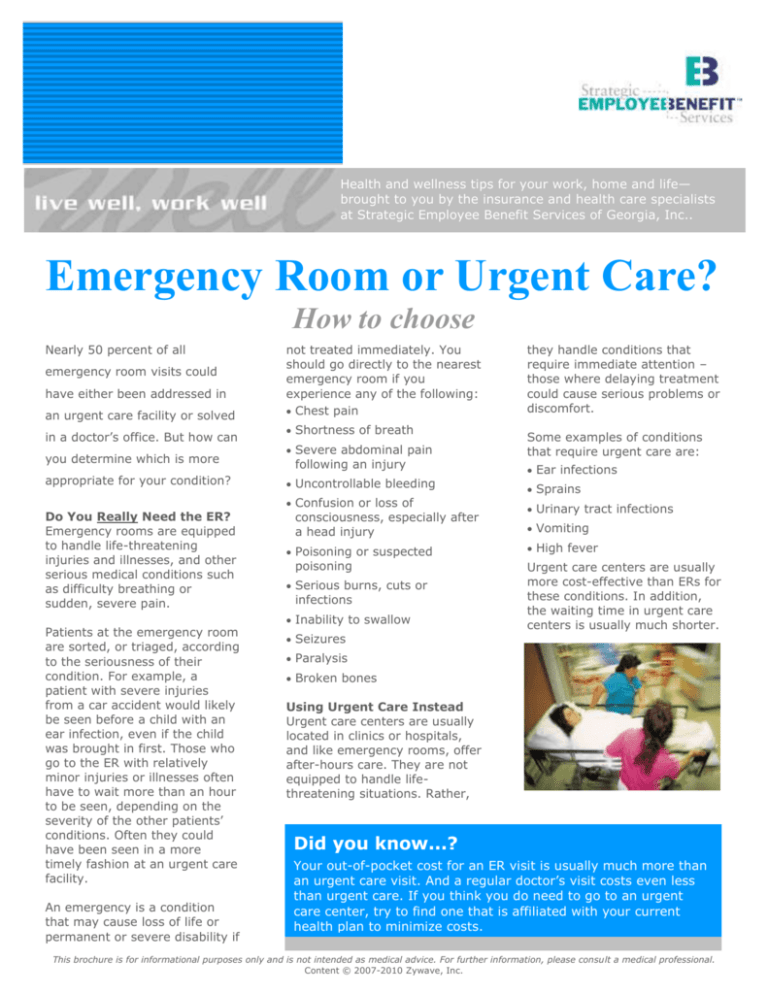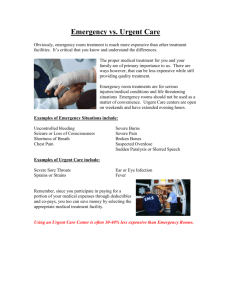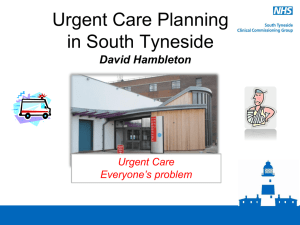How to choose
advertisement

Health and wellness tips for your work, home and life— brought to you by the insurance and health care specialists at Strategic Employee Benefit Services of Georgia, Inc.. Emergency Room or Urgent Care? How to choose Nearly 50 percent of all emergency room visits could have either been addressed in an urgent care facility or solved in a doctor’s office. But how can you determine which is more appropriate for your condition? Do You Really Need the ER? Emergency rooms are equipped to handle life-threatening injuries and illnesses, and other serious medical conditions such as difficulty breathing or sudden, severe pain. Patients at the emergency room are sorted, or triaged, according to the seriousness of their condition. For example, a patient with severe injuries from a car accident would likely be seen before a child with an ear infection, even if the child was brought in first. Those who go to the ER with relatively minor injuries or illnesses often have to wait more than an hour to be seen, depending on the severity of the other patients’ conditions. Often they could have been seen in a more timely fashion at an urgent care facility. An emergency is a condition that may cause loss of life or permanent or severe disability if not treated immediately. You should go directly to the nearest emergency room if you experience any of the following: Chest pain Shortness of breath Severe abdominal pain following an injury Uncontrollable bleeding Confusion or loss of consciousness, especially after a head injury Poisoning or suspected poisoning Serious burns, cuts or infections Inability to swallow Seizures they handle conditions that require immediate attention – those where delaying treatment could cause serious problems or discomfort. Some examples of conditions that require urgent care are: Ear infections Sprains Urinary tract infections Vomiting High fever Urgent care centers are usually more cost-effective than ERs for these conditions. In addition, the waiting time in urgent care centers is usually much shorter. Paralysis Broken bones Using Urgent Care Instead Urgent care centers are usually located in clinics or hospitals, and like emergency rooms, offer after-hours care. They are not equipped to handle lifethreatening situations. Rather, Did you know...? Your out-of-pocket cost for an ER visit is usually much more than an urgent care visit. And a regular doctor’s visit costs even less than urgent care. If you think you do need to go to an urgent care center, try to find one that is affiliated with your current health plan to minimize costs. This brochure is for informational purposes only and is not intended as medical advice. For further information, please consult a medical professional. Content © 2007-2010 Zywave, Inc.











